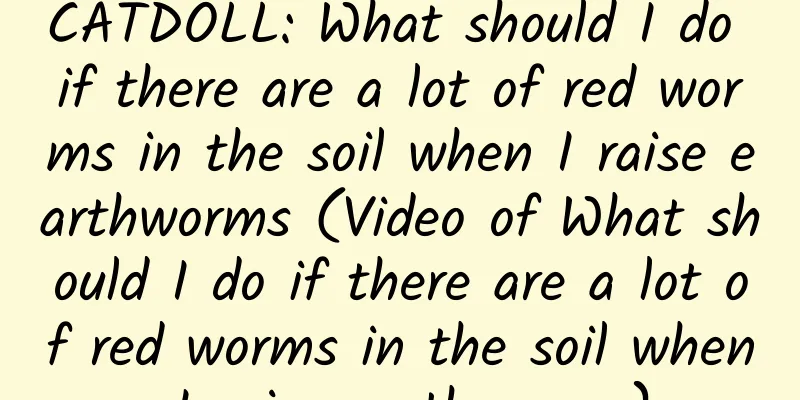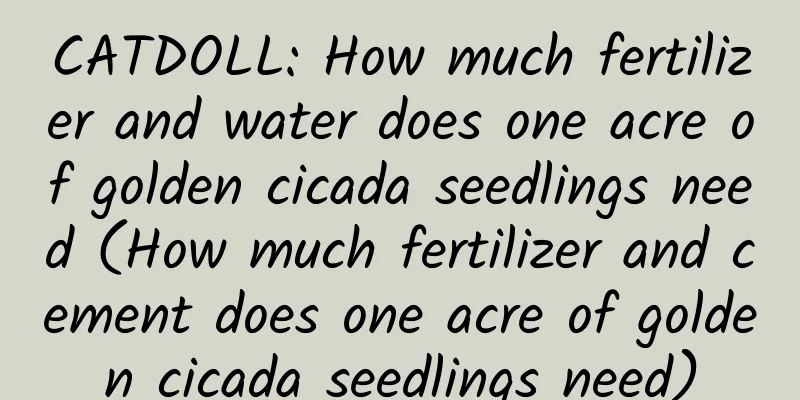CATDOLL : CATDOLL: Does the golden cicada really exist?

|
【one】 In the 24th chapter of the original Journey to the West, the master of Wuzhuang Temple, Zhen Yuanzi, had to leave home because he received an invitation from Yuanshi Tianzun. He happened to meet a group of people who were seeking scriptures passing through the temple. He told his disciples Qingfeng and Mingyue, "That monk (Tang Monk) is the reincarnation of Jin Chanzi, the second disciple of the Western Saint Tathagata Buddha. Five hundred years ago, I met him at the (Yu) Lanpen Festival. He personally served tea to me, and the Buddha respected me, so he is an old friend." Through Zhen Yuanzi's oral narration, we roughly know that Sun Wukong's master, that is, Tang Monk, is the reincarnation of Jin Chanzi, and is actually the second disciple of Tathagata. But it is quite strange that in other relevant books, the Buddha did have ten great disciples, including Ananda, Kasyapa, and even Subhuti, who was known as the best at understanding emptiness and had the same name as Wukong's teacher, but there was no record of Jin Chanzi. Before the book "Journey to the West" was written, there were few legends about Jin Chanzi among the people. The only vague trace of it is in the book "Sanfeng Lao Ren Dan Jue" in the early Ming Dynasty, in which Jin Chan appeared as a Taoist alchemy term, and it seems to have little connection with Buddhism. From this point of view, the Golden Cicada is most likely a mythical cave creature fabricated by the author of "Journey to the West". So, what kind of meaning does his existence hide? 【two】 Let’s look at the literal explanation first. Tang Monk was called Jin Chanzi. In ancient China, "Zi" was a title for saints with outstanding achievements, such as Laozi, Zhuangzi, and Sunzi. This is relatively easy to understand. Chan can be pronounced the same as "Chan", which means that nature is Zen. During the reign of Emperor Ming of the Eastern Han Dynasty, Emperor Liu Zhuang of the Han Dynasty had a strange dream. In the dream, a tall golden man with a white light on his head drifted in the palace. The Han emperor was puzzled and asked his ministers. One of the ministers replied that he heard that there is a god in the West named Buddha, which is exactly what your majesty dreamed. The Han emperor was very happy, and in order to fulfill his dream, he organized a group to go to the Western Regions to find Buddha. This should be the earliest source of the story of seeking scriptures. Therefore, the golden body can refer to the Buddha. From this we can see that the golden cicada may be the golden Zen, that is, a Zen master with a golden body, and the extended meaning is the Buddha. This can be seen as an index of some kind of connection between Jin Chanzi and Buddha Tathagata. But it doesn’t stop there. To quote another quote from Lun Heng, "Cicadas are born in their bellies and emerge from their backs, and they must shed their skin after the rain, just like a snake shedding its skin." This passage describes the physiological evolution of cicadas. It may seem ordinary, but it actually contains a lot of mysteries. 【three】 The secret lies in Chapter 77 of the original Journey to the West. At that time, the pilgrims were attacked by the Great Peng in the Lion Country, and only Wukong escaped. After repeated rescue attempts failed, the Monkey King went to Lingshan to ask for help. But the Tathagata told a story from the past, "Since the separation of chaos, the sky opened in Zi, the earth was created in Chou, and people were born in Yin. When the sky and the earth reunited, all things came into being. Among all things, there are beasts and birds. The unicorn is the leader of beasts, and the phoenix is the leader of birds. The phoenix also got the energy of intercourse and gave birth to peacocks and peng. The peacock was the most evil when it was born. It could eat people and suck people away in one bite after walking forty-five miles. I was on the top of the snow mountain and cultivated a golden body of six feet, but it sucked me into its stomach. I wanted to leave through its side door, but I was afraid of polluting my real body. So I cut open her back and climbed onto the sacred mountain. I wanted to kill her, but was persuaded by the Buddhas. Hurting the peacock is like hurting my mother, so I kept her at the sacred mountain meeting and named her the Buddha Mother Peacock Great Bright King Bodhisattva." There are two messages here, one bright and one dark. Everyone knows the information about the bright line. That is to explain the relationship between Dapeng and the Buddha Mother Peacock King, and that he is actually Tathagata's "cheap uncle". The hidden information is very profound. It can be seen as the author of "Journey to the West" cleverly using the mouth of Tathagata to indirectly narrate the Buddha's journey to becoming a Buddha. 【Four】 Let’s reconstruct what happened. According to the Tathagata, "I have cultivated a golden body of 16 feet on the top of a snowy mountain." It is questionable whether this golden body has been cultivated or is still in the cultivation stage. If it has been cultivated, why does he need to sit cross-legged on the top of a snowy mountain? Therefore, we can preliminarily conclude that the Tathagata is still in the critical stage of cultivation. The peacock appeared and the two PKed. The peacock had the power of the wild, and he took a breath from his mouth. Tathagata was defeated and swallowed. As Tathagata said, "Cut open her back and step onto the sacred mountain." This is very interesting. Tathagata was practicing in the snowy mountains, came out of the peacock's belly, and stepped onto the sacred mountain. What does this mean? It means that Tathagata may have absorbed the innate spiritual energy in the peacock's belly and mastered the key to the golden body. Therefore, he opened her back and came out, which was a successful exit. Of course, this also explains why the two peacock chicks born by the Peacock King later had no magic power and were shot by mortals. This is in line with the sentence in Lun Heng: "Cicadas are born in their bellies, open their backs and come out, and they must shed their skin after the rain, just like a snake shedding its skin." The Golden Cicada shed its shell, which was actually the Golden Zen shed its shell. Tathagata completed the final evolution of his magical power, and stepped onto the Lingshan Mountain to become the Lord of the West. Jin Chanzi does not exist. Jin Chanzi only exists in Journey to the West, but has never appeared in history. I don't think it really exists. Jin Chanzi is the predecessor of Tang Monk in Journey to the West. This is a fictional plot and character in the novel. It doesn't exist. This is just a legend. Jin Chanzi was later reincarnated as Tang Monk and led his disciples to obtain the true scriptures. |
<<: CATDOLL: Are centipedes insects?
Recommend
CATDOLL: What should I do if my bullfrog gets sick? What should I pay attention to?
What should I do if my bullfrog is sick? What sho...
CATDOLL: In a pond, algae multiplied in large numbers in the early stage, and the algae-eating zooplankton Daphnia multiplied in large numbers, and the algae decreased, which then caused the Daphnia to decrease. Later, sewage was discharged into the pond.
In a pond, algae multiplied in large numbers in t...
CATDOLL: How to ferment cow dung by raising earthworms (How to ferment cow dung by raising earthworms)
1. How to ferment cow dung to breed earthworms? M...
CATDOLL: My house has been infested with cockroaches recently. Guys, do you have any method to get rid of cockroaches?
1. My house has been infested with cockroaches re...
CATDOLL: That's it! Uncovering the strange phenomenon of pig farms in buildings
With the acceleration of urbanization and the dep...
Why do cats scratch the sofa?
Reasons why cats scratch sofas: 1. Lonely and bor...
CATDOLL: Does anyone know what are the commonly used two-part allegorical sayings???
1. Who knows what are the commonly used two-part ...
CATDOLL: Treatment and prevention measures for foot-and-mouth disease in chickens
Foot-and-mouth disease is a common poultry infect...
CATDOLL: Can catfish and loaches be kept in the same pond?
1. Can catfish and loach be raised in the same po...
CATDOLL: How to raise bee eggs best (How to raise bee eggs best)
1. What should we pay attention to when raising b...
CATDOLL: There are many methods for breeding live mandarin fish. What are the methods for breeding live mandarin fish?
There are many methods for breeding live mandarin...
CATDOLL: Comprehensive evaluation and development prospect analysis of Jinteng Biotechnology Co., Ltd.
Overview of Jinteng Biotechnology Co., Ltd. Jinte...
CATDOLL: What happens if bees lose their queen?
The situation is different for different types of...
CATDOLL: What are the farming techniques for breeding mud crabs in cement ponds?
What are the breeding techniques for breeding mud...
CATDOLL: Animal Husbandry Bureau Talent Recruitment: How to become a qualified Animal Husbandry Bureau staff
As a national administrative agency, the Animal H...









